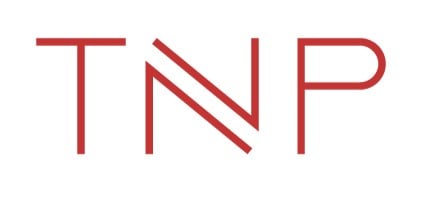

Chief legal and regulatory affairs officer, company secretary | Airtel Nigeria



Shola Adeyemi
Chief legal and regulatory affairs officer, company secretary | Airtel Nigeria
Team size: 15
What are some of the main legislative or regulatory changes that have impacted you?
The Federal Government, through the NCC, is in the process of implementing a policy of harmonising the subscribers SIM details with their NIN details. The implementation of this regulatory direction has required telecom subscribers to submit their National Identification Number (NIN) to their respective MNOs to prevent their lines from being barred. This has required MNOs to revise their process to accommodate the verification of NIN against NIMC’s database, and has also required prospective subscriber to obtain their NIN from NIMC. Operators have had to make significant investments in technology and connectivity to NIMC to verify subscribers.This to also has financial implications for the industry in terms of engagement cost, potential revenue loss, and the development of the relevant technologies.
Secondly, the increase in the minimum age requirement for SIM registration to 18 has impacted the demography of persons between 16 and 18 years who are heavy users of data and communication services, for educational, innovation and other reasons. Their parents or guardians to register on their behalf, which is not always practical.
The restriction of a maximum of four SIMs per NIN or person per network was introduced to reduce the number of SIMs that can be registered by persons and subsequently resold to bad elements engaged in activities considered to be threats to national security. While the intention behind the Directive is laudable, it has the unintended impact affecting the full adoption of IOT which required connected devices to have their SIMs for connectivity purposed.
The National Policy for the Promotion of Indigenous Content in the Nigerian Telecommunications Sector, 2021: Local production of SIM cards to reduce sector’s dependence on imports and capital flight. By virtue of the Policy, the NCC mandated MNOs to stop importing their SIM cards and start purchasing from the same local manufacturers. While local purchase was initially a more expensive option for operators because local manufactures do not have the same economics of scale as their foreign counterparts, operators were willing to bear this additional cost for the overall good of the country because it encouraged local manufacturing and reduced the pressure on the country’s FX reserves.
The Federal Government issued an Official Gazette – Customs, Excise Tariff, etc (Variation) Order, 2023 wherein a 5% Excises Duties on Telecommunications Services was introduced. The implication of this introduction is an increase in the cost of doing business, which would translate to an increase in price for telecom services, which may result in the decrease in services purchased by the public relative to the purchasing power of consumers. However, through arduous engagements by the MNOs through industry associations, the implementation of this surcharge has been suspended for now.
A final legislative change is the Finance Act, which, among others, introduced the imposition of 7.5% VAT on telecommunications masts or towers. This tax has further raised operating costs already exacerbated by the continued rising energy cost in the industry and multiple taxation. Currently, there are ongoing industry engagements to canvass for the discontinuation of this tax on the already overburdened industry.
What are some of the main trends in the industry sector you work in in Nigeria?
The NCC recently introduced the MVNO licensing framework and licensed about 43 MVNO operators. None of these operators have become operational as critical arrangements amongst stakeholders are yet to be finalised, such as the cost or pricing framework and commercial agreements with host MNOs.
The journey of 5G in Nigeria officially began in 2019 when the NCC disclosed that it would test 5G for three months in the country before actual approval and rollout. While 5G has been launched in major cities in Nigeria like Lagos, Abuja, Port Harcourt, Ibadan, and Kano, among others, based on data obtained from the Nigerian Communications Commission portal, it currently accounts for less than 2% percent of the total mobile subscriptions (220.36 million). 5G is not expected to be the dominant network in Nigeria anytime soon, however, more Nigerians are expected to adopt 4G first and 5G’s growth will only begin to pick up in the later part of the decade.
Despite the recent rollout of 5G in Nigeria and some other Sub-Saharan African countries, the 4G network is expected to continue to be dominant. While the world has already recorded over one billion 5G connections, Africa is still playing catch up.
Nigeria’s Internet of Things market is experiencing exponential growth, driven by the increasing adoption of smart home devices and the government’s focus on digital transformation. The projected revenue for the IoT market in Nigeria is estimated to reach $7.40bn by the end of 2024. Among the various segments within the IoT market, the Automotive IoT segment is expected to dominate, with a projected market volume of $3.02bn in the same year. Looking ahead, the revenue is anticipated to exhibit a compound annual growth
The NCC noted that SIM boxing and traffic refilling started in September 2016 when it reviewed and implemented the termination rate for international inbound international traffic, and fraudulent persons took advantage of the difference in price to the determent of MNOs. The estimated revenue loss from SIM boxing was N3bn as of 2018, while the global losses from SIM box fraud and the broader interconnect bypass fraud are estimated at $28.3bn.The NCC is committed to leveraging an anti-fraud solution integrated to all networks of the major telcos in the country to monitor, identify and prevent the incidence of traffic refiling and SIM boxing.
Chief legal and regulatory affairs officer | Airtel Networks